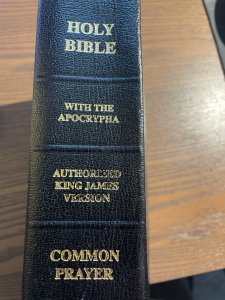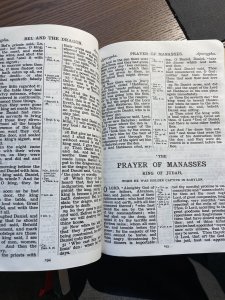- Nov 21, 2008
- 51,352
- 10,607
- Country
- United States
- Faith
- SDA
- Marital Status
- Married
A number of non-traditionalist denominations such as SDAs, Baptists, most Presbyterian, all Methodists, evangelicals etc - do not accept the Apocrypha as "scripture" and so have an even wider "intertestimental period" then the approx. 100 year gap that the traditionalist admit to. That is fine with me because the non-traditionalist group are the ones I run into the most my area of the USA. So I am not bothered by being in what Christianity Today called the 5th largest Christian denomination in the world - that sides with the evangelical groups in agreeing on the "wider gap" in intertestimental period.
from: What Is the Apocrypha? Are Apocryphal Books Really Scripture?.
"The United Methodist Church The United Methodist Church, like most other Protestant denominations, do not recognize the Apocrypha as authoritative Scripture. But they do allow apocryphal books to be read aloud ..."
from: What Is the Apocrypha? Are Apocryphal Books Really Scripture?.
"The United Methodist Church The United Methodist Church, like most other Protestant denominations, do not recognize the Apocrypha as authoritative Scripture. But they do allow apocryphal books to be read aloud ..."
"In the third century B.C., Jewish scholars translated the Hebrew Bible (the Old Testament) into Greek, resulting in the Septuagint. Several books were included in the Septuagint that were not considered divinely inspired by Jews but were included in the Jewish Talmud, which is a supplement, of sorts, or interpretation of the Hebrew Bible.
“That version incorporated a number of works that later, non-Hellenistic Jewish scholarship at the Council of Jamnia (AD 90) identified as being outside the authentic Hebrew canon. The Talmud separates these works as Sefarim Hizonim (Extraneous Books),” according to Britannica.
“That version incorporated a number of works that later, non-Hellenistic Jewish scholarship at the Council of Jamnia (AD 90) identified as being outside the authentic Hebrew canon. The Talmud separates these works as Sefarim Hizonim (Extraneous Books),” according to Britannica.


